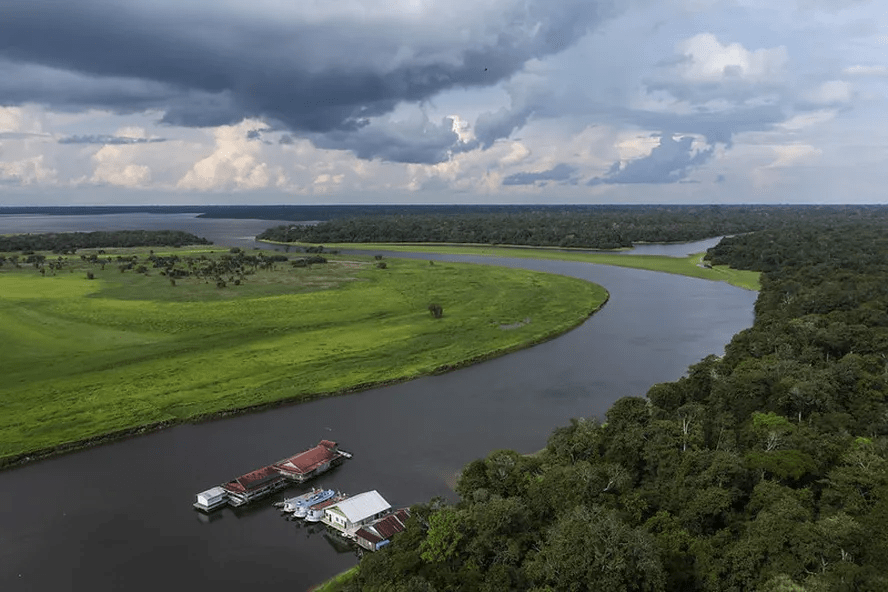Big names from the corporate world such as Pedro Wojciechowski, Candido Brasher, Denis Minev, Pedro Bueno and Guilherme Leal are participating in an initiative to promote the development of science and technology targeting the bioeconomy of the Amazon region, in a project led by Arapyaú. And Agni institutes. What entrepreneurs and executives understand is that there will be no sustainable economic development in the region without research and innovation. Information is from condition.
The initiative is called the “Strategy to Promote Science, Technology and Innovation in the Amazon Bioeconomy,” and has been underway since last year, when more than 70 interviews were conducted with researchers living in the region to obtain a diagnosis of the situation.
“The conclusion from this initial part of the project is that the links are broken. Bridges need to be strengthened. There are many development agencies working in the region, but many of them do not interact with the local communities. , co-founder of Natura): “It is essential to connect knowledge.”
According to her, much of the research conducted in the region does not mirror that conducted in the Amazon and, therefore, companies and entrepreneurs working in the bioeconomy cannot use them as solutions.
The idea of creating the project emerged in 2022, in a conversation between Leal and Pedro Bueno (CEO of Dasa Health Group), who saw the need for the private sector to support science and technology applied in the bioeconomy.
The following year, specialists from the Philanthropic Institutes for Entrepreneurs (AGNI is an initiative of Bueno) met two or three times a week to start the program. In addition to the 70 interviews conducted with researchers, two trips were conducted to the Amazon region to map the bottlenecks of technological development in the region.
An authority in the field of innovation, former Chairman of the Board of Directors of Ultra Group Pedro Wongtschowski is part of an advisory group created to guide the activities of the initiative. The Executive states that most public science and technology institutions in the legal Amazon today do not have ideal operating conditions.
Wongchowski highlights the state of the herbarium at the National Institute for Amazon Research (Inpa), which has one of the largest collections of plants in the Amazon, but has an ancient structure. “People turn off the air conditioners there at night because they are afraid of a short circuit that could lead to a fire. “But without air, fungi can destroy the collection,” says he, who holds, among other positions, the head of the Supreme Council for Innovation and Competitiveness. In Fiesp (Federation of Industries of the State of São Paulo) and a member of the Supreme Council of Fapesp (Foundation for Research Support of the State of São Paulo).
According to the executive, another obstacle to the progress of research and innovation in the region is the retention of researchers. Promising young people have left. We need to create an innovation ecosystem so people can stay there. “We are looking into how to do this.”
Wongtschowski participated in regular meetings on this topic and helped develop the proposals. He says he is “convinced” there is money to promote science in the Amazon, but it is necessary to create projects and proper governance to attract resources.
Itau board member and CEO of the bank between 2017 and 2021, Candido Brasher, is also part of the advisory group created to guide the initiative. For him, developing research and innovation in the Amazon bioeconomy should create jobs and increase economic activity.
“You do not support low levels of deforestation supported exclusively by the enforcement of environmental legislation. This scientific development in the Amazon is an attempt to create economic wealth in the region, in order to make forest protection sustainable.
Brasher highlights that research conducted in the region needs to identify problems in local economic activities and find solutions through technological knowledge generated in the Amazon. “Instead of doing research and then distributing the results, you try to identify where the demand for research is.”
The head of Lojas Bemol (a retail chain operating in the north of the country), Denis Minev, is also part of the program's advisory group. According to him, turning the Amazon into a “carbon store” would be a “crime,” even if this alternative does not interest the local population. “If we want to have something that will appeal to everyone, science and technology must be at the core.”
Minev highlights that Brazilian projects such as the Institute of Aviation Technology (ITA) and the Brazilian Agricultural Research Foundation (Embrapa) are examples of what needs to be done and how innovation can transform the economy. “Everyone understands that the Amazon is a biodiversity heritage site. But it has not generated the benefits it could have, because we have not invested in research as strongly as we should have.” At times, like when the ITA was created, Brazil has been bold, ambitious and determined To do something. “In the Amazon region, we have not yet adopted this position.”
Next steps
After conducting a diagnosis of the current situation of existing research centers in the Amazon region, the initiative intends to present to Brasilia a set of laws and normative tools, such as draft laws, strengthening decrees and management proposals, for the development of research and science in the Amazon region. The proposals will be presented at the Fifth National Science, Technology and Innovation Conference, to be held in June.
According to Pagoto, of the Arab Institute, the next step of the program is to raise resources through philanthropy to conduct research that can provide technological solutions for economic activity in the Amazon region. Potential activities include cocoa farming, development of pharmaceuticals or cosmetics, production of “superfoods” (foods high in vitamins, proteins, minerals and fibre) and energy generation through biomass, among other activities.
After completing this experiment, the initiative must disseminate the knowledge gained so that other institutions can replicate similar experiments. “The idea is not to impose solutions on the regions. But work from what's already there. “The Amazon region has particularities and many national policies are not suitable for it,” Pagoto says.

“Hardcore beer fanatic. Falls down a lot. Professional coffee fan. Music ninja.”


:strip_icc()/s01.video.glbimg.com/x720/12625160.jpg)




More Stories
Israel ignores the court’s request and attacks Rafah The world and science
What are the oldest experiments still active in the world?
The government notifies health plans of unilateral termination of contracts; See list